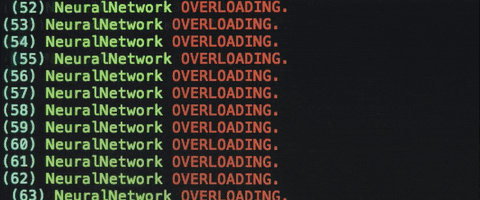Well, you must have seen Hollywood Sci-fi (Science Fiction) movies in which a skinny guy portray being able to do anything with the computer like able to hack someone's system, open/close doors in the prisons.

With just a few keystrokes and some fancy graphics, they bypass firewalls, decrypt passwords, and access classified information. But what lies behind this Hollywood portrayal of hacking? What enables these characters to perform such digital feats?
The secret lies in the operating system (Kernel) they often use: Linux.
Linux, often depicted as the go-to OS for hackers in movies, is more than just a plot device. It's a powerful, open-source operating system that has played a significant role in shaping the digital landscape. Unlike proprietary operating systems like Windows or macOS, Linux offers unparalleled flexibility, security, and customization, making it a favorite among hackers, developers, and system administrators alike.
What is Linux?
Linux is an open-source operating system kernel originally created by Linus Torvalds in 1991 while he was a student at the University of Helsinki, Finland. Inspired by the Unix operating system, Torvalds set out to develop a Unix-like kernel that would be freely available to anyone interested in contributing to its development. What started as a personal project quickly gained momentum as developers worldwide rallied behind the idea of collaborative software development.
Why Linux?
So, what makes Linux so compelling, and why do millions of users worldwide choose it over proprietary alternatives? There are several key factors:
- Flexibility and Customization: Linux offers unparalleled flexibility and customization, allowing users to tailor their operating environment to suit their specific needs and preferences. From lightweight distributions for older hardware to specialized editions for multimedia production and gaming, Linux offers something for everyone.
- Stability and Reliability: Linux is renowned for its stability and reliability, making it the platform of choice for mission-critical systems and high-performance computing environments. With its rock-solid architecture and robust security features, Linux powers some of the world's most demanding workloads with ease.
- Security and Privacy: Linux's open-source nature and transparent development process make it inherently more secure and privacy-focused than proprietary alternatives. With a strong emphasis on user control and data protection, Linux empowers users to safeguard their digital assets and maintain their privacy in an increasingly connected world.
- Cost-Effectiveness: Perhaps one of the most compelling reasons to choose Linux is its cost-effectiveness. Unlike proprietary operating systems that require expensive licenses and subscriptions, Linux is available free of charge, making it an attractive option for individuals, businesses, and organizations looking to reduce their IT costs without compromising on performance or features.
- Open Source: One of the defining features of Linux is its open-source nature. This means that its source code is freely available for anyone to view, modify, and distribute. This fosters a vibrant community of developers who continuously improve and customize the operating system to suit various needs.
- Community Support: The Linux community is vast and diverse, offering extensive documentation, forums, and online resources for troubleshooting and assistance.
- Performance: Linux is known for its efficiency and performance optimization, making it well-suited for resource-constrained environments and high-performance computing tasks.
Uses of Linux
- Servers: Linux dominates the server market, powering a significant portion of the world's web servers, cloud infrastructure, and data centers. Its scalability, reliability, and cost-effectiveness make it the preferred choice for hosting services and managing network operations.
- Desktops and Laptops: While traditionally associated with server environments, Linux has gained traction as a desktop operating system in recent years. With user-friendly distributions such as Ubuntu, Linux Mint, and Fedora, more individuals and organizations are adopting Linux for everyday computing tasks.
- Embedded Systems: Linux is widely used in embedded systems, ranging from consumer electronics to industrial machinery. Its small footprint, customizability, and real-time capabilities make it an ideal platform for powering devices such as routers, smart appliances, and automotive infotainment systems.
- Development and Education: Linux is a favorite among developers and students due to its extensive toolset and support for programming languages. Many programming environments, such as Python and Java, are natively supported on Linux, making it an excellent platform for software development and learning computer science concepts.
Leave a comment
Your email address will not be published. Required fields are marked *
